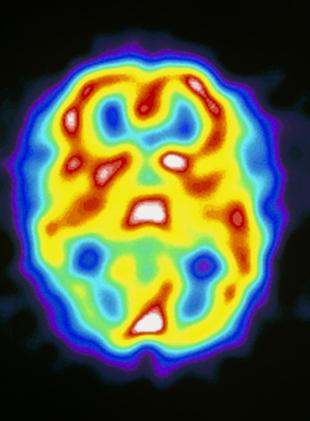
I am an infectious disease physician and have been practicing in the Seacoast area for 20 years. I have seen and treated a large number of patients with Lyme disease. I feel comfortable that the scientific guidelines as published by my professional society, Infectious Diseases Society of America, and very recently revalidated, are medically sound and simply “work” for the overwhelming majority of my patients.that said, I recognize that there are rare patients that have chronic multisystem complaints that are not helped with standard treatment for Lyme disease. I have seen many of these patients through my career. not all medical symptoms fall into a clean diagnosis. some have been classified as having chronic fatigue syndrome, fibromyalgia, and others. my observation is that some of these individuals seem to have a true, indefinable medical condition, some will have an alternative medical diagnosis that requires a comprehensive medical evaluation, and some will have underlying psychiatric issues. this is not in any way to disparage the latter group. Depression is a ubiquitous medical disorder and the associated medical symptoms can mimic organic disease.as above, I do believe that there is a true medical condition (or conditions) that we are currently unable to characterize. Symptoms often include fatigue, muscle pain, activity intolerance, sore throat, tender lymph nodes, disturbed sleep, and cognitive complaints. over the years, many theories have been advanced as to the cause of these disorders. Various viral, bacterial, and fungal etiologies have been advanced and refuted. Testing on these patients sometimes demonstrates evidence of either immunologic deficiency or activation, but not in a consistent fashion. Clinical management of these patients is very difficult. in the absence of a specific treatment, management is largely symptomatic. the major portion of a visit to my office for a patient will involve counseling and support. this takes a lot of time and energy on my part. I sincerely wish that there was a “cure” for these patients. it would be much easier for all involved to simply prescribe a pill than to spend 45 minutes discussing lifestyle modification. stress management, and sleep hygiene.”Chronic Lyme disease” fits this paradigm. in the absence of an easily treatable and diagnosable disorder, the void has been filled with inaccurate and self-fulfilling testing performed by non-validated laboratories and with non-evidence based guidelines. this is not unique to this illness; I have seen similar “loose” testing and treatment for chronic fatigue syndrome patients. and from a patient’s perspective, I understand this. People are ill and are desperate to feel well again. if a carrot is held out, who wouldn’t want to grasp for it? it becomes easy to cast those who offer the “cure” as heroes, and traditional practitioners as the villains. some patients will experience symptomatic improvement on long-term antibiotics A placebo effect has been appreciated in the controlled studies of this disorder. Furthermore, there is a nonspecific anti-inflammatory effect of certain antibiotics (including doxycycline) that can result in some modest symptomatic improvement. Parenthetically, I have seen a number of patients with serious adverse effects related to long-term antibiotics, who feel afraid to discontinue them. I have had a number of patients that have simply wanted me to validate that it was acceptable for them to come off antibiotics.I believe that the patient-doctor relationship should allow for an individualized approach, for this or any illness. often, after careful consideration of all the risks and benefits, a practitioner will recommend a specific course of treatment, even if it is outside of usual conventions. good physicians do this on a regular basis. “Chronic Lyme disease” does not require specific dispensation. like any other medical illness, a provider may decide to offer a treatment that diverges from the accepted scientific guidelines. even though the vast majority of patients with Lyme disease are well-served with these guidelines, a thoughtful medical evaluation may suggest a different approach. this does not require a law. Opening Pandora’s box with legislation puts the government in the position of recognizing any other chronic illness without scientific validation.I am concerned that such a law is a veiled effort to legislate and legitimize a medical condition, a dangerous legislative precedent. Furthermore, this law may actually do patients a disservice. Patients may be given a diagnosis of chronic Lyme disease based on non-validated laboratory testing and the weight of media and popular attention, at the expense of a true and thoughtful medical evaluation. Appropriate medical diagnosis and treatment may be delayed. this would be the price we pay for displacing medical diagnosis and treatment from health care professionals to the whims of politics.I again must emphasize that I have nothing but respect and compassion for patients that are suffering with chronic illness. these patients deserve the benefit of a thoughtful medical evaluation, not a cookie cutter diagnosis and treatment. A compassionate provider may decide on a case-by-case basis that a patient deserves treatment that diverges from standard conventions. A law is not needed for this. good medical care should be based on the specific application of evidence-based medicine on a very personal level. Again, this does not need to be legislated. these very personal medical decisions should be left to providers, not to politics or public opinion.